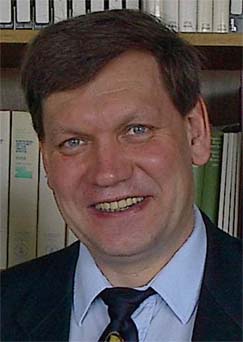Season Greetings!
See also:
-- 'Books Forum' blog
-- 'Health Studies' blog
Dear Friends,
Our Season Greetings and Best Wishes for the New Year to you!
When a New Year approaches, we often try to summarize what has happened during the ending year.
This year our research team has published the following papers on aging and longevity topics:

Please post your comments and suggestions below, by clicking here.

Also this year we gave invited talks at:
As well as scientific presentations at:
This year we attended two fascinating scientific meetings:
Also this year we are elected to become Fellows of the Gerontological Society of America:
If you are interested in our lectures and/or scientific cooperation, please contact us at:
gavrilov(at)longevity-science.org
P.S.: Please post your comments and suggestions below, by clicking here.
Fellowships of the Gerontological Society of America:

.
-- 'Books Forum' blog
-- 'Health Studies' blog
Dear Friends,
Our Season Greetings and Best Wishes for the New Year to you!

When a New Year approaches, we often try to summarize what has happened during the ending year.
This year our research team has published the following papers on aging and longevity topics:
Gavrilova N.S., Gavrilov L.A. Aging Populations: Russia/Eastern Europe. In: P. Uhlenberg (Editor), International Handbook of the Demography of Aging, New York: Springer-Verlag, 2009, pp.113-131.
Gavrilov L.A., Gavrilova N.S. Personal Profile. Interview with Leonid Gavrilov and Natalia Gavrilova. Rejuvenation Research, 2009, 12(5): 371-374.
Gavrilova N.S., Gavrilov L.A. Genetic Influences in Later Life. In: D. Carr (Editor), Encyclopedia of the Life Course and Human Development, Macmillan Reference USA, 2009, vol.3, pp.165-170.

Gavrilov L.A., Gavrilova N.S. Demographic Consequences of Defeating Aging. [Meeting Abstract]. Rejuvenation Research, 2009, 12( Suppl. 1): 29-30.We hope perhaps you may find some of these publications interesting.
Gavrilova N.S., Gavrilov L.A. Search for Mechanisms of Exceptional Human Longevity. [Meeting Abstract]. Rejuvenation Research, 2009, 12( Suppl. 1): 30.
Gavrilov L.A., Gavrilova N.S. Body Size in Midlife and Exceptional Longevity: A Study of the US WWI Draft Registration Cards. [Meeting Abstract]. The Journal of Nutrition, Health & Aging, 2009, 13( Suppl. 1): 178-179.
Gavrilov L.A., Gavrilova N.S. Parental Longevity Influences on Mortality Trajectories in Humans. [Meeting Abstract]. The Journal of Nutrition, Health & Aging, 2009, 13( Suppl. 1): 551.
Please post your comments and suggestions below, by clicking here.

Also this year we gave invited talks at:
-- Lectures "Contemporary methods of mortality analysis", Charles University, Prague, Czech Republic
-- International Scientific Conference "Strategies for Engineered Negligible Senescence" (SENS4), Cambridge, England
-- Scientific Workshop "War on Aging: Strategies", Pushino, Russia
As well as scientific presentations at:
-- Gerontological Society of America Annual Meeting, Atlanta, USA
-- XIXth IAGG World Congress of Gerontology and Geriatrics, Paris, France
-- Population Association of America Annual Meeting, Detroit, USA
-- Scientific conference of the International Network on Health Expectancy (REVES),Copenhagen, Denmark
This year we attended two fascinating scientific meetings:
-- Longevity Consortium, San Diego, USA
-- Longevity Summit, Manhattan Beach, USA
Also this year we are elected to become Fellows of the Gerontological Society of America:
-- GSA Fellowship for Leonid Gavrilov
-- GSA Fellowship for Natalia Gavrilova
If you are interested in our lectures and/or scientific cooperation, please contact us at:
gavrilov(at)longevity-science.org
Thank you, and Happy New Year!
Kind regards,
– Leonid Gavrilov and Natalia Gavrilova
http://longevity-science.org/
P.S.: Please post your comments and suggestions below, by clicking here.
Fellowships of the Gerontological Society of America:

.
Labels: aging, Happy New Year, Leonid Gavrilov, longevity, Merry Christmas, Natalia Gavrilova, Russia, Season Greetings




